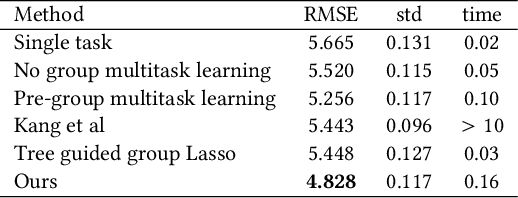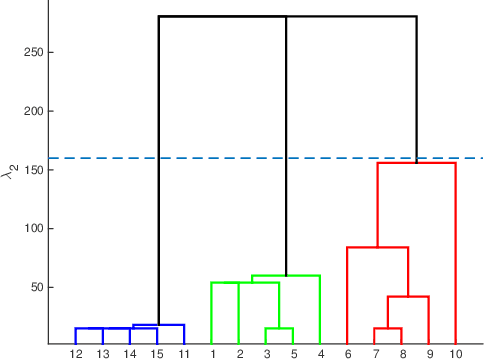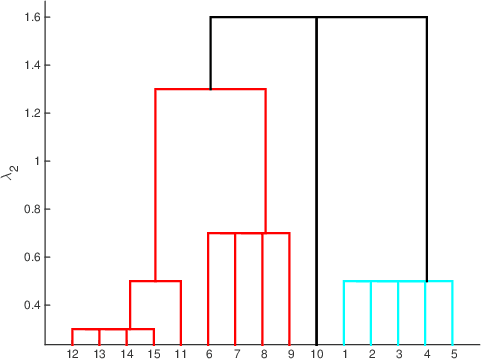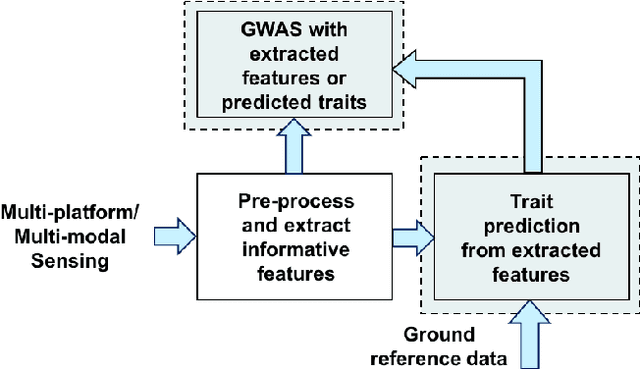Multitask Learning using Task Clustering with Applications to Predictive Modeling and GWAS of Plant Varieties
Paper and Code
Oct 04, 2017



Inferring predictive maps between multiple input and multiple output variables or tasks has innumerable applications in data science. Multi-task learning attempts to learn the maps to several output tasks simultaneously with information sharing between them. We propose a novel multi-task learning framework for sparse linear regression, where a full task hierarchy is automatically inferred from the data, with the assumption that the task parameters follow a hierarchical tree structure. The leaves of the tree are the parameters for individual tasks, and the root is the global model that approximates all the tasks. We apply the proposed approach to develop and evaluate: (a) predictive models of plant traits using large-scale and automated remote sensing data, and (b) GWAS methodologies mapping such derived phenotypes in lieu of hand-measured traits. We demonstrate the superior performance of our approach compared to other methods, as well as the usefulness of discovering hierarchical groupings between tasks. Our results suggest that richer genetic mapping can indeed be obtained from the remote sensing data. In addition, our discovered groupings reveal interesting insights from a plant science perspective.
 Add to Chrome
Add to Chrome Add to Firefox
Add to Firefox Add to Edge
Add to Edge